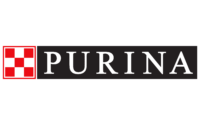ANTIMICROBIAL EPOXY COATINGS: FLOORING THAT IS DURABLE, SANITARY, AND SAFE FOR YOUR ENVIRONMENT
Antimicrobial Epoxy Flooring Trusted by Top Brands














Lisa M.
Cris H.
Nathan D.
Recent Antimicrobial Epoxy Flooring Projects
Advent Health
Anderson County Hospital
Clinical Reference Laboratory
Antimicrobial Epoxy Coatings To Meet Your Unique Needs
What Is Antimicrobial Epoxy?
Anywhere that microorganisms, especially bacteria, can grow is considered microbial — this applies to most surfaces. Interestingly, epoxy flooring is almost completely antimicrobial, making it one of the most sanitary flooring choices for almost any space.
An antimicrobial additive can be included in epoxy to kill microorganisms or stop their growth. The antimicrobial agent added to the flooring works at a cellular level, inhibiting or stopping the growth of microorganisms and killing pathogens.
How Does Antimicrobial Epoxy Floor Coating Work?
Antimicrobial epoxy coatings have a biostatic effect that kills mold, mildew, fungi, yeast, algae, and bacteria upon contact. The active antimicrobial agent works in a slow-release fashion that will continue to kill unwanted organisms for the life of the floor.
Seamless Epoxy Floors Naturally Resist Bacteria
Epoxies and other seamless flooring systems are typically non-porous, and they do not allow liquid or air to pass through them. Being a non-porous material, once cured, epoxy provides a hygienic flooring surface that will not harbor bacteria.
To better illustrate the above characteristic of epoxy, if you pour a glass of water on an untreated slab of concrete, the water will absorb through or into the concrete. However, if you do the same experiment on a piece of plastic, you will see that the water stays suspended on the surface.
Other Benefits of Antimicrobial Epoxy Coating
Antimicrobial epoxy is not limited to flooring applications. The seamless antimicrobial coating can be applied to walls and ceilings. This is ideal for labs and restrooms.
Also, with the advent of COVID-19, cleaning routines have become more robust in many facilities where epoxy floors are typically installed. The routine use of isopropyl alcohol and other disinfectants will usually degrade acrylic paints but should not affect industrial epoxies.
Where Is Antimicrobial Flooring Used?
Antimicrobial coatings are the best choice in facilities where cleanliness is vital and hygienic flooring provides a distinct advantage. These include:
- Food and beverage processing plants
- Medical facilities
- Commercial buildings and office spaces
- School cafeterias
- Restaurants
- Animal care centers
- Pharmaceutical labs
- And more
Floors in these types of environments must withstand regular cleaning, heavy traffic, harsh chemicals, and extreme temperatures. In many industries, these antifungal and antibacterial floor coatings are required by the USDA and FDA.
Treadwell specializes in the installation of antimicrobial epoxy flooring. Or, as we like to call them, no-nonsense surfaces that last. What really makes us stand out isn’t just what we do, but how we do it. Contact us today to find out what makes us a premier antimicrobial epoxy flooring company.
Antimicrobial Epoxy Flooring Installation and Repair
Installation
Our in-house team can fully install your new antimicrobial epoxy flooring. Our process is built to be efficient and limit the disruption of your operations. We do everything from floor prep (helping guide your team as to how the space needs to be when we arrive) to the actual installation. We can even work weekends and evenings at a small premium over regular working hours.
Repair and Service
Treadwell will analyze your current flooring system to figure out the causes of failure or damage. We utilize our test results to choose the best flooring repair option available for the unique needs of your facility and then provide antimicrobial epoxy floor servicing to fix the issue.
